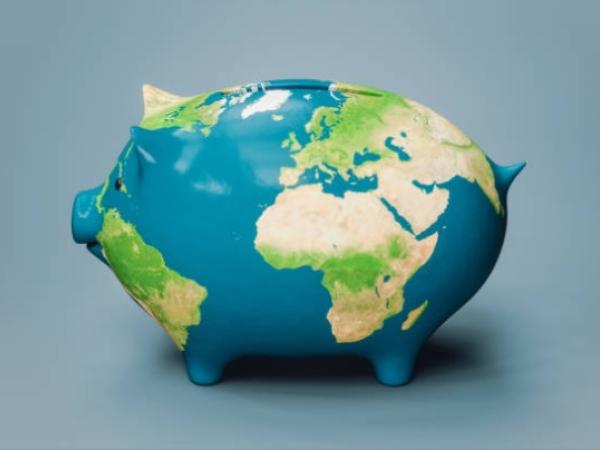The World Bank (WB) lowered, this Tuesday, June 7, the forecast of global growth up to 2.9% and warned that the war in Ukraine, high prices and problems in the supply chain could lead to a situation of stagflation: high inflation coupled with very weak growth.
(See: Colombian economy would grow 5.4% in 2022, according to the World Bank).
In its updated Global Economic Perspectives report, published this Tuesday, the World Bank lowered its growth forecast by 1.2 points compared to what was projected in January, when it placed it at 4.1%.
The main new element in the Bank’s forecasts is the ukrainian War, which started at the end of February and is having many effects on the world economy: an increase in the price of raw materials, more problems for the supply chain and greater uncertainty, among others.
For 2023, the World Bank also lowered the growth outlook, in this case by 0.2 points, to 3%.
(See: Slowdown and inflation, blows for Latin America from war in Ukraine).
From the international financial organization they warned against the temptation that may arise among the governments of developing countries to set price controls or restrictions on exports to deal with high prices and the foreseeable citizen protests.
“Politicians in emerging markets and developing economies should refrain from implementing export restrictions and price controls that could magnify rising commodity prices“, the report stated.
(See: Colombia equals OECD average with inflation of 9.2% in April).
Among the largest economies on the planet, the World Bank forecasts for this year a growth of 2.5% in USA (1.2 points less than January); 4.3% in China (a reduction of 0.8 points) and also 2.5% in the Eurozone (1.7 points less).
In the case of Japan, the financial entity expects a growth of 1.7% (1.2 points less than in January), and in the Russia, a drop in economic activity of 8.9% (11.3 points less), due to its invasion of Ukraine and the economic sanctions imposed by the rest of the countries.
(See: Message for candidates: it is necessary to increase tax revenues).
The World Bank left the growth forecast for Latin America and the caribbean practically the same as in January: at 2.5%, only 0.1 points below the 2.6% projected six months ago.
EFE


















